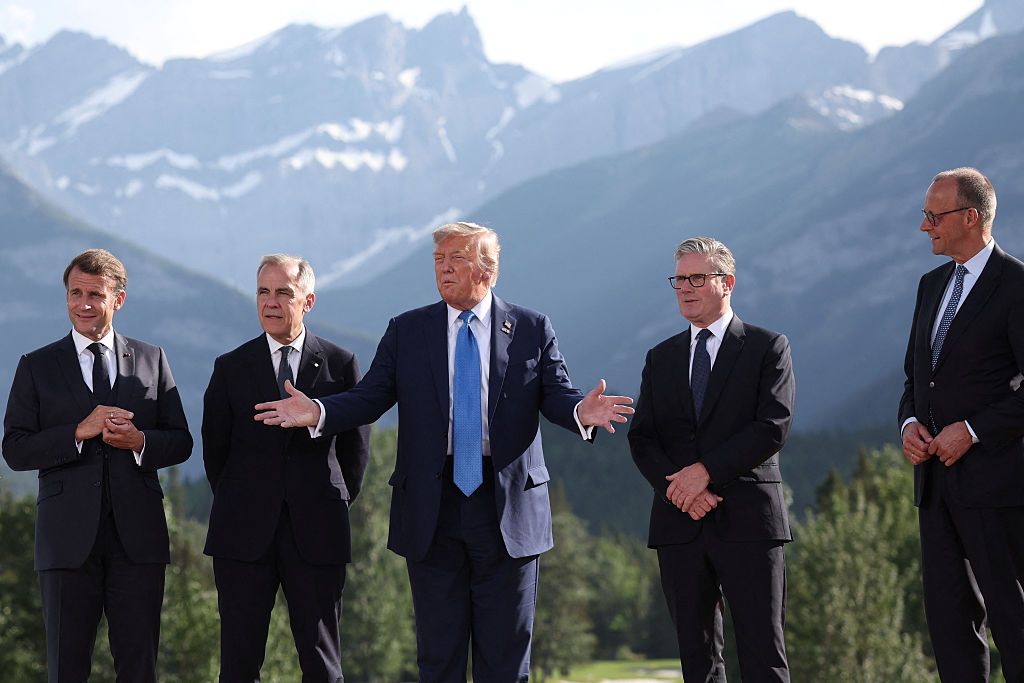Food Stamp Cuts Could Deal a Blow to Small Grocers

© Jessica Attie for The New York Times


© Jessica Attie for The New York Times
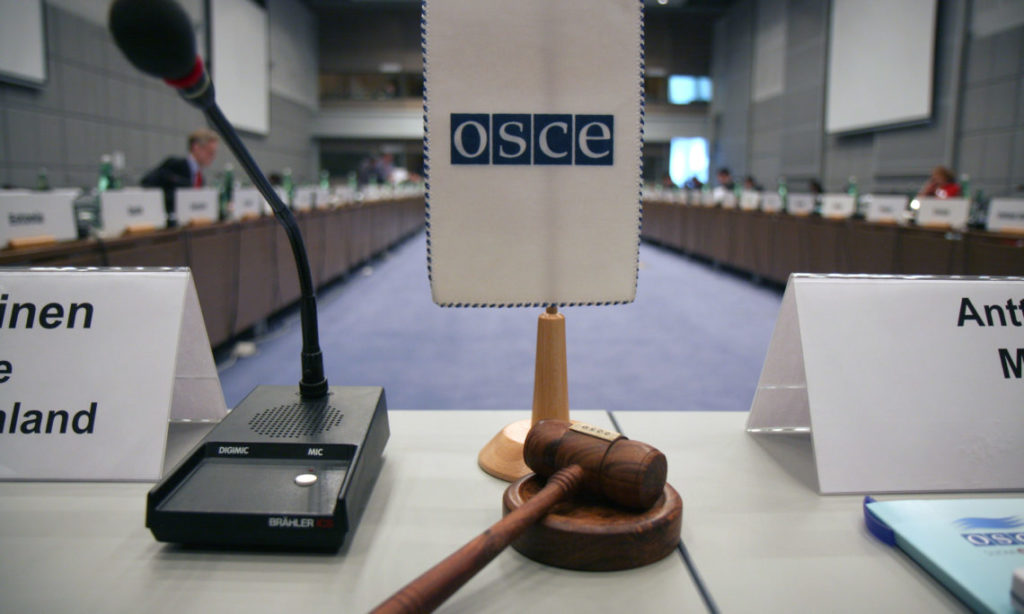

Moscow is blocking the organization’s work, which was supposed to monitor its war crimes in Ukraine. Ukrainian Foreign Minister Andrii Sybiha states that Russia should no longer be a member of the Organization for Security and Cooperation in Europe (OSCE), UkrInform reports.
According to him, Moscow is obstructing the OSCE’s activities because the organization’s mission was to document numerous violations of international law, including Russia’s war crimes.
“A country that has violated all ten fundamental principles of the Helsinki Act should not hold a place in this organization,” Sybiha emphasizes.
The Helsinki Act of 1975 is not a legally binding treaty but a political document containing key norms of international law that form the basis of European security. The ten principles include:
Russia has systematically violated these principles since annexing Crimea in 2014, conducting the war in Donbas, and, since 2022, waging all-out war. These violations include illegal use of force, breaches of Ukraine’s territorial integrity, interference in internal affairs, and gross human rights abuses, including war crimes.
Sybiha reminds that the OSCE was created in very different geopolitical circumstances during the Cold War, but today, Russia has turned the organization into a tool for advancing its own interests.
In 2022, Russia blocked the extension of the mandate of the OSCE Special Monitoring Mission in Ukraine, which had previously operated in Donbas. Since then, the OSCE supports Ukraine through other programs but without a direct presence in combat areas.
“It cannot be that one country blocks the work of the entire organization, which aims to enhance security. Russia is the main cause of instability in Europe,” the minister stresses.
Ukraine insists on reforming the OSCE and expelling the aggressor country from its membership to restore the organization’s trust and effectiveness.


Russian oil is stranded at sea. At least four tankers carrying Russian oil are unable to dock near India’s shores due to the threat of sanctions from the US and EU, Bloomberg reports.
India is one of Russia’s main economic partners, after China. Moscow continues to profit from oil supplies to India, accounting for nearly 35% of the country’s imports. Moscow’s energy exports remain its leading source of revenues, which it uses to fund its war against Ukraine.
In mid-July, the EU implemented new sanctions against Russia aimed at cutting its energy revenues. At the same time, US President Donald Trump’s administration has threatened India with high import tariffs and penalties for buying Russian oil.
Earlier, the head of the Indian Oil Corporation, A.S. Sahni, stated that if Russian supplies are restricted, the company will revert to traditional import schemes used before the war in Ukraine, when Moscow’s export to India was lower than 2%.
Satellite tracking data shows that the tankers Achilles and Elyte, which loaded Urals crude in late June from Primorsk and Ust-Luga, are anchored near the port of Jamnagar, although they were scheduled to arrive in Sikka on 30–31 July. Both vessels are listed under EU and UK sanctions.
Russia streams oil revenues into its missiles and drones to kill Ukrainian civilians. The UN Human Rights Monitoring Mission in Ukraine documented 232 civilian deaths and 1,343 injuries in June 2025, marking the highest monthly casualty toll in three years as Russian forces launched ten times more missile strikes and drone attacks than in June 2024.
Two other tankers — Destan (under sanctions) and Horae (not sanctioned) — are also off the coast, awaiting unloading. Destan was due in Sikka on 24–25 July, while Horae is en route to Vadinar and expected to arrive on 1 August.
The delay of four tankers may signal that the era of consequence-free trade is nearing its end. Even if the tankers eventually reroute or unload, the situation marks a new phase of global pressure on countries doing business with Russia.
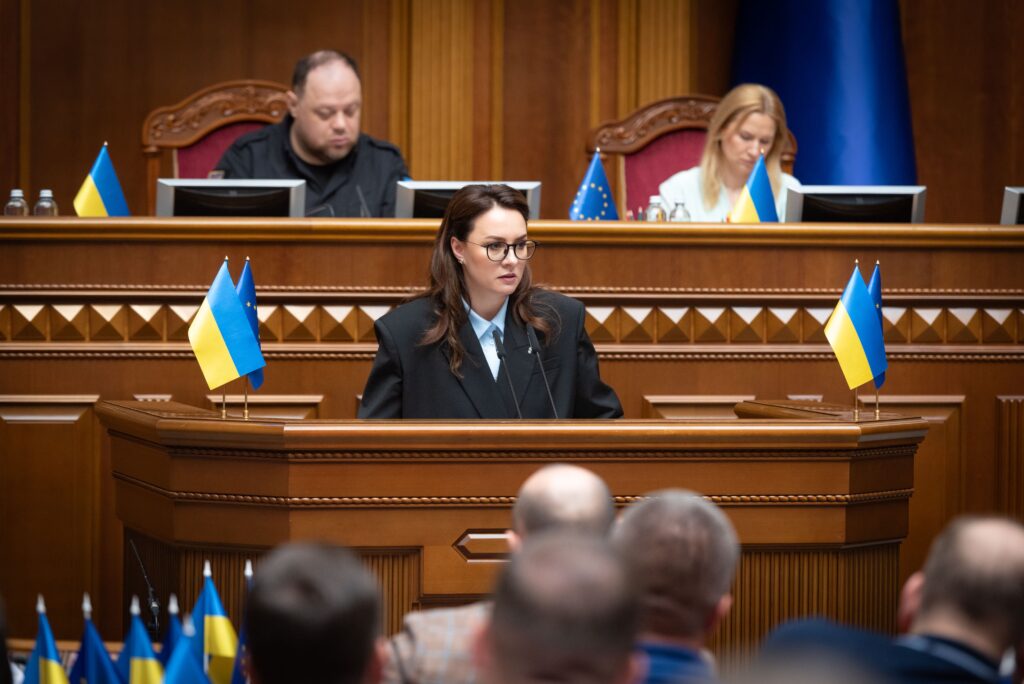

The Ukrainian government takes an unusual step amid EU pressure. Facing the threat of losing billions in aid, Ukrainian Prime Minister Yuliia Svyrydenko has announced that Oleksandr Tsyvinsky, the selected candidate for Director of the Bureau of Economic Security (BEB), has agreed he will undergo a polygraph test.
The Ukrainian prime minister says she has held a direct meeting with Tsyvinsky on 1 August, during which they agreed he would take a polygraph test.
“We agreed with Oleksandr on how to remove all doubts in a civilized manner and arranged for him to take a polygraph test. This guarantees that the situation is free of manipulation and allows us to move forward,” Svyrydenko states.
She adds that the selection commission has already made its decision and that the government has received the results from additional background checks.
Tsyvinsky is a National Anti-Corruption Bureau (NABU) detective who won the BEB director position in June 2025. The competition involved international experts. Tsyvinsky leads one of NABU’s elite detective units. His appointment was to symbolize the restoration of trust in anti-corruption bodies.
However, on 7 July, the Ukrainian government refused to approve him, citing “security concerns” as assessed by the Security Service. In response, Tsyvinsky stated that the government’s decision “does not comply with the law.”
The prime minister emphasizes the shared interest in making the Bureau of Economic Security an effective institution trusted by both business and the public. She expresses hope that the Ukrainian government will reach a final decision next week.
“This will be a major contribution to rebuilding trust between the state and the business community,” Svyrydenko adds.
The government’s refusal to approve the competition winner marked another escalation in tense relations between Ukrainian authorities and NABU, which sharply intensified this summer.
On 22 July, President Volodymyr Zelenskyy signed the controversial bill, which curtails the NABU’s independence, as well as the liberty of the Specialized Anti-Corruption Prosecutor’s Office (SAPO), by requiring their key decisions to be coordinated with the Prosecutor General’s Office.
The law led to mass civil society protests and criticism from international partners as it contradicts Ukraine’s commitments to the EU and the US on anti-corruption reforms.
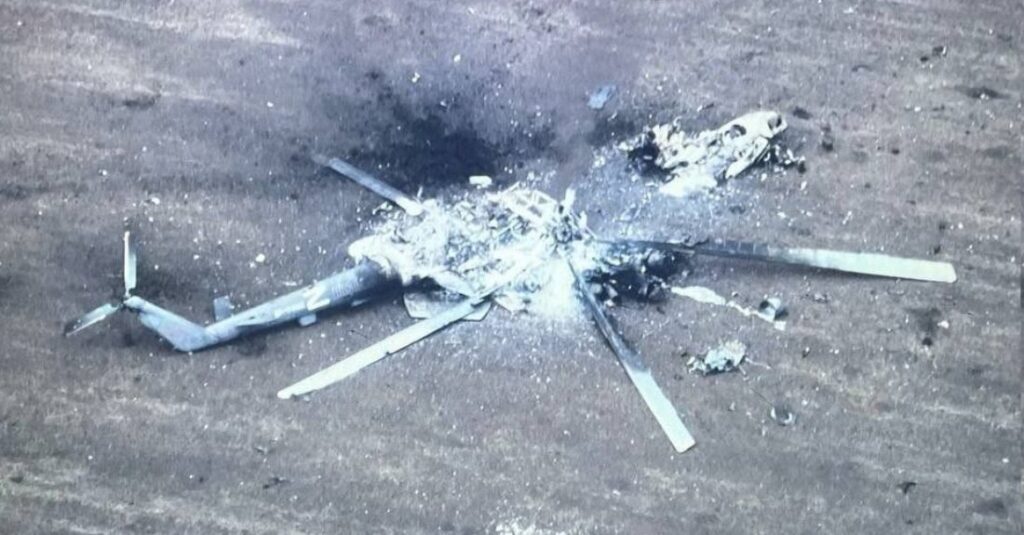

Hungary helps Russia by routing helicopter repairs through Kazakhstan while sourcing spare parts from Moscow, InformNapalm reports. InformNapalm is a volunteer intelligence community known for cyber operations exposing Russian military networks. Their latest release reveals a Hungarian company, Milspace Kft, offering a sanctions workaround for Russia’s Mil Design Bureau — the producer of Mi-series helicopters actively used against Ukrainian troops.
InformNapalm, working with the Militant Intelligence group, disclosed new data from the OpsHackRussia’sDay cyber operation. The dataset comes from hacked corporate correspondence of Russian defense industry companies. The latest document shows that Milspace Kft sent an official proposal to the Mexican company Personas y Paquetes Por Aire SA de CV. In this letter, Milspace Kft explains that Russian helicopter factories are under sanctions and offers a route to bypass these restrictions.
The leaked letter states:
“The Russian factory in Kazan, Mil Design Bureau and Holding of Russian Helicopters are under sanctions because of Ukrainen (original spelling, – Ed.) war. So, nobody can work with them directly. But we found a solution”
Milspace Kft proposes to act as the formal contractor while repairs would be done in a Kazakhstan plant licensed by Mil Design Bureau.
“Our Milspace is authorized organization of licensed by Mil Design Bureau repairing plant in Kazahstan. We are ready to participate in process of overhaul for your helicopters,” the leaked letter reads.
Spare parts would come from Moscow, specifically from Mi-INTER Ltd. The work would be supervised and coordinated with Mil Design Bureau and Russian Helicopters, both parts of Rostec, a large Russian state-owned conglomerate.
“Every of these organizations ready to participate in our repairing process, so the start was made successfully,” the document states.
InformNapalm reports that this letter details a service package worth $92,000. The plan includes a team of four “to carry out troubleshooting work on airframe and helicopters under a separate contract.”
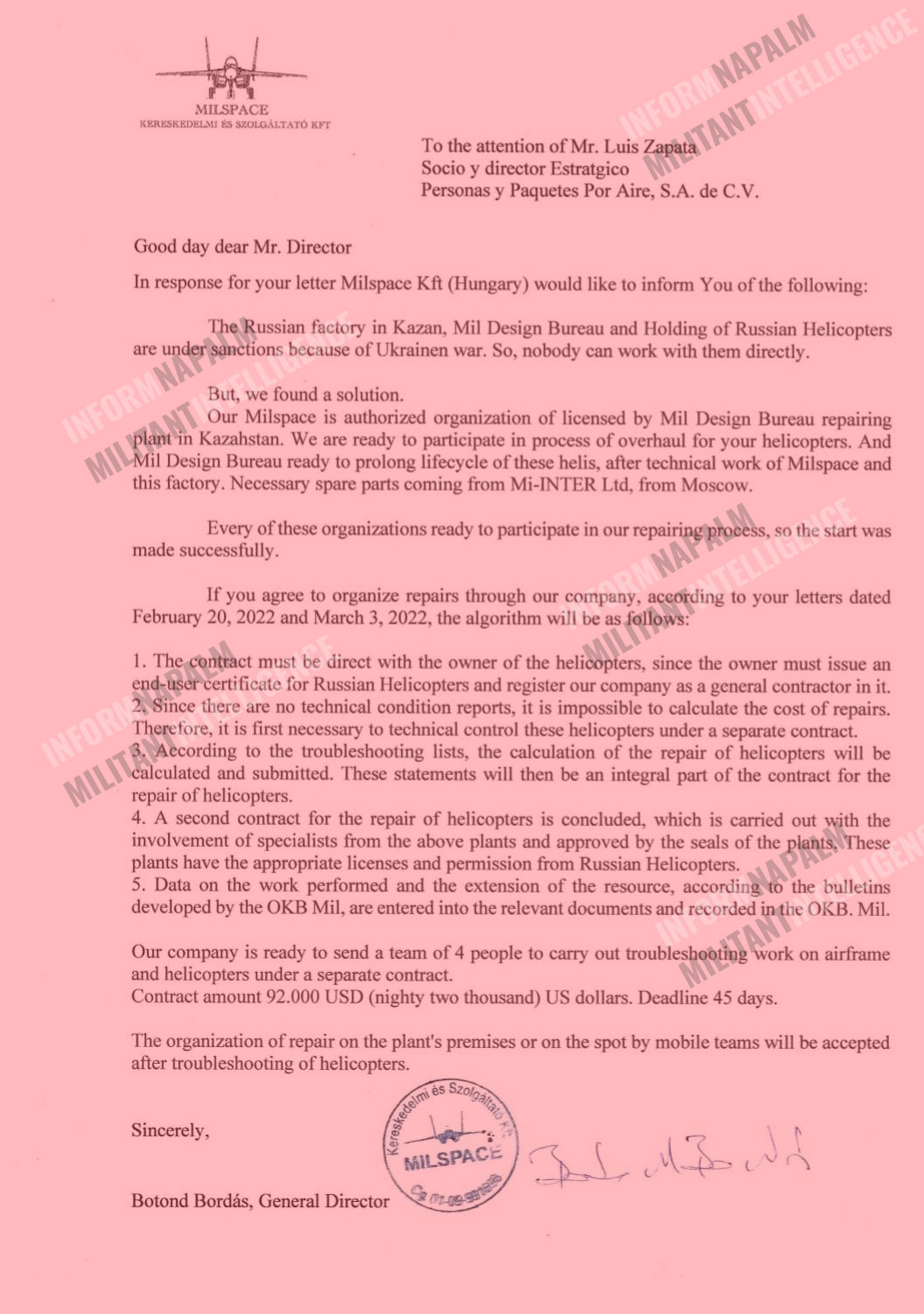
“Hungarian Prime Minister Viktor Orbán has consistently shown loyalty to the Kremlin, delaying EU sanctions and blocking military aid to Ukraine through NATO and EU structures. Therefore, Milspace Kft’s involvement in these operations aligns with Budapest’s geopolitical position, which often conflicts with the core interests of both the EU and NATO,” Inform Napalm says.
InformNapalm warns that Hungary’s involvement undermines NATO collective security. The practice ensures that sanctioned Russian helicopters remain operational, despite restrictions. This leak also highlights a broader pattern of using Kazakhstan as a hub for maintaining Russian equipment, similar to previous findings from the #SU30Leaks series.
Hacktivists call on journalists and European officials to investigate these sanction evasion networks before they grow further. They note that more documents from the OpsHackRussiasDay operation will follow.


© Eric Lee for The New York Times


© Erica Dischino for The New York Times
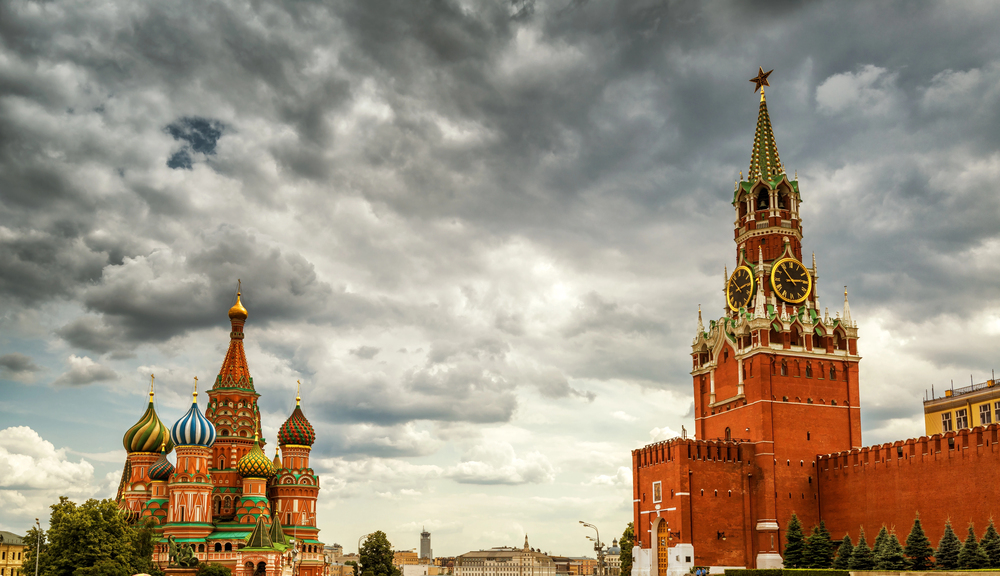

Russia threatens not only Ukraine. The Kremlin’s imperial ambitions also target Moldova, Georgia, Kazakhstan, and Azerbaijan, Ukraine’s Defense Intelligence reports.
During the Soviet era, Kazakhstan, Moldova, Azerbaijan, and Georgia were under Moscow’s control and subjected to centralized governance. The Kremlin wants to unify all of these countries into one fellow state.
Andriy Yusov, a representative of the Ukrainian Defense Intelligence, states that Russia’s war against Ukraine is not only a struggle for Ukrainian independence but also a fight for the right of all peoples to live freely and choose their own path.
“Ukraine defends the idea of integration into the European Union and pays a high, heavy price for it,” Yusov says, highlighting the European and democratic dimension of the conflict.
Yusov warns that Russia’s imperial ambitions pose a danger not only to Ukraine but also to neighboring states: Moldova, Georgia, Kazakhstan, and Azerbaijan. Historical parallels and the Kremlin’s current policies indicate a desire to expand influence and control over its neighbors.
“Every missile, every drone destroyed by Ukrainians during the Russian aggression means that this arsenal will not be used against any peaceful country,” he adds.
The intelligence representative highly praised Azerbaijan’s position, which actively opposes Russian imperialism and demonstrates the capability to give a worthy response to aggressors.
Ukrainian-Azerbaijani relations significantly improved in 2024–2025 following a series of aggressive actions by Russia. In December 2024, Russian forces shot down an Azerbaijani aircraft near Grozny, killing 38 passengers. Shortly afterward, Russia launched raids on its territory, resulting in the deaths of two Azerbaijani citizens. In response, Baku began openly strengthening ties with Kyiv.
This is an important signal for the entire region that free countries are ready to unite in resisting the common threat.


Amid Russian missile strikes and a gas war, Ukraine has taken its first step toward strategic energy retaliation. Ukraine’s national energy company Naftogaz has announced it has signed its first agreement for the supply of Azerbaijani gas with the state-owned company SOCAR.
Ukrainian-Azerbaijani relations significantly improved in 2024–2025 following a series of aggressive actions by Russia. In December 2024, Russian forces shot down an Azerbaijani aircraft near Grozny, killing 38 passengers. Shortly afterward, Russia launched raids on its territory, resulting in the deaths of two Azerbaijani citizens. In response, Baku began openly strengthening ties with Kyiv. During the Soviet era, Armenia, Azerbaijan, and Georgia were under Moscow’s control and subjected to centralized governance.
The first gas test delivery was carried out through the Trans-Balkan corridor, which runs from the Bulgarian—Romanian—Ukrainian border.
“This is a small-volume but strategically important step that paves the way for long-term cooperation. It’s also another example of diversifying supply sources and strengthening Ukraine’s energy security,” says Serhiy Koretskyi, CEO of Naftogaz.
Due to Russian strikes on gas infrastructure, Ukraine is forced this year to import a significant volume of gas from Europe. According to former Energy Minister Herman Halushchenko, at least 4.6 billion cubic meters of imported gas must be injected into underground storage facilities. As of June, 2.9 billion cubic meters had already been contracted.
A new route through Greece, Bulgaria, Romania, and Moldova was launched in May, opening another window of opportunity for Ukraine.
SOCAR operates actively in Türkiye, Romania, Georgia, Switzerland, and Ukraine, where its subsidiary SOCAR Energy Ukraine runs one of the country’s largest premium gas station networks.
The company is involved in strategic projects supplying Caspian gas to Europe, particularly via the TANAP and TAP pipelines.
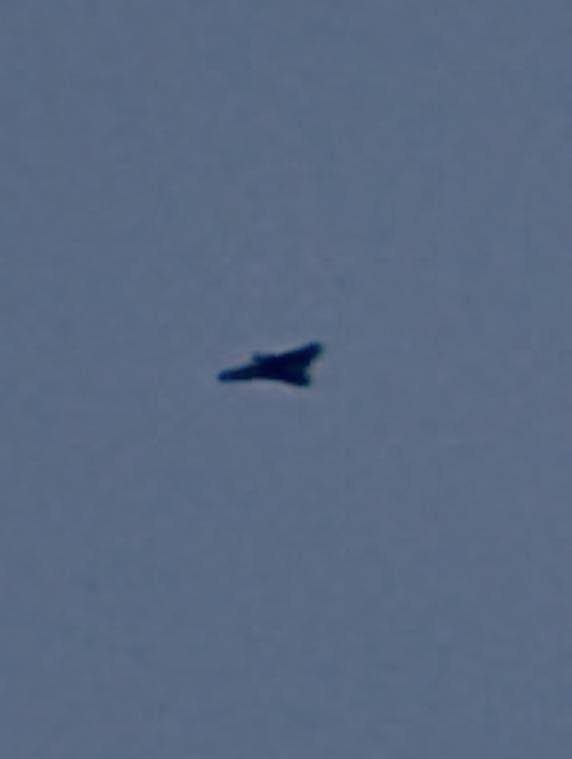

An unidentified unmanned aircraft violated Lithuania’s airspace on 28 July, likely originating from Belarusian territory, prompting a full-scale security response.
According to LRT, residents began reporting drone sightings to police early 28 July morning, with witnesses describing an aircraft flying at approximately 200 meters altitude near the capital Vilnius.
“In the morning, reports came from residents about an unmanned aircraft that most likely flew into Lithuania from Belarus,” said Darius Buta, representative of the National Crisis Center. “According to reports, the drone was seen at an altitude of about 200 meters, last time – near Vilnius.”
Lithuanian police activated all available forces and notified other security services following the reports. Authorities have urged citizens to report any new sightings while warning against approaching the aircraft if spotted on the ground.
Video footage circulating online suggests the aircraft may be a Russia “Geran” or “Gerbera” type drone, identifiable by its distinctive sound signature. Defense Minister Dovilė Šakalienė told LRT that officials are still working to determine the aircraft type.
“Given that Belarus is preparing for exercises, the probability of incidents, including unintentional ones, is increasing,” Šakalienė added.
This marks the second such violation in recent weeks. On 10 July, a Russian “Gerbera” drone entered Lithuanian territory via Belarus, prompting Lithuania to file a formal protest note with Belarusian authorities.
Meanwhile, Poland scrambled aircraft to patrol its airspace overnight Sunday into Monday as Russia launched missile attacks against Ukraine.
According to the Polish Armed Forces Operational Command, both Polish and allied aircraft were deployed while ground-based air defense systems reached maximum readiness in areas close to Ukraine’s border.
“These actions are preventive in nature and are aimed at securing the airspace and protecting citizens, especially in areas adjacent to the threatened region,” the Operational Command wrote.
Recently, Ukraine, Poland, and Lithuania formed a new alliance within the Lublin Triangle to counter Russia’s manipulation of shared history. They established a Historians’ Forum aimed at preventing Moscow from exploiting historical events to sow discord among the countries amid the ongoing war with Russia.
The alliance also focuses on strengthening military and cultural ties and supporting Ukraine’s EU and NATO integration, with regular foreign minister meetings planned at least twice a year.


© Saher Alghorra for The New York Times


© René van den Berg/Alamy


Ukrainian prayer returns to the heart of the Lavra. For the first time in the history of independent Ukraine, the Orthodox Church of Ukraine (OCU) held a service in the caves of the Kyiv-Pechersk Lavra, a sacred site that had been under the control of the Moscow Patriarchate for decades, UkrInform reports.
The Kyiv-Pechersk Lavra, founded around 1051, is considered one of the oldest and most important Orthodox shrines in Eastern Europe. Its complex includes churches and underground caves, which attracted thousands of pilgrims and tourists from around the world before Russia’s war.
On 23 July, Metropolitan Epiphanius of Kyiv and All Ukraine led the prayer service in the Lower Lavra, gathering OCU believers and clergy.
“The Kyiv-Pechersk Lavra is a special sanctuary for our people, which, unfortunately, was long under occupation by the Moscow Patriarchate,” said Epiphanius, adding that prayers have risen here for a thousand years, in the heart of Ukrainian Orthodoxy.
He noted that Ukrainian services have been held in the Upper Lavra for over two and a half years and that this recent service in the caves marks the start of regular worship in the Lower Lavra as well.
“We are beginning regular services. There is always a first step… We are initiating Ukrainian prayer here in the Lower Lavra, near our venerable Kyiv-Pechersk Fathers,” emphasized the Primate.
Prayers were offered for the Ukrainian people, the soldiers defending independence, Ukraine’s victory over the aggressor, and the establishment of a just peace.
“We will appeal to the venerable Fathers… for Ukraine’s victory, for the triumph of truth, and the establishment of a just peace in Ukraine,” said Metropolitan Epiphanius.
The return of the Lavra to the OCU has been underway since 2023, when the government terminated the agreement with the UOC (MP) concerning the Dormition Cathedral and the Refectory Church, due to that body’s ties to the Moscow Patriarchate and threats to national security.
“The Russian Federation uses religious organizations for its own purposes… We are moving forward. This is an irreversible process,” said Epiphanius.
Svitlana Kotliarevska, director of the Kyiv-Pechersk Lavra Reserve, highlighted the event’s symbolism.
“The caves are the heart of the Lavra… Today marks the beginning of a new chapter in the history of the Kyiv-Pechersk Lavra and of Ukraine,” she explained.
She added that Ukrainian-language services in the caves are not just a religious milestone but a national one.
“Ukrainian language in Ukrainian caves, in the Ukrainian Kyiv-Pechersk Lavra… I believe future generations will remember this day as the start of a new chapter,” Kotliarevska said.
Similar services are expected to soon begin in the Near Caves as well.


© Tingshu Wang/Reuters
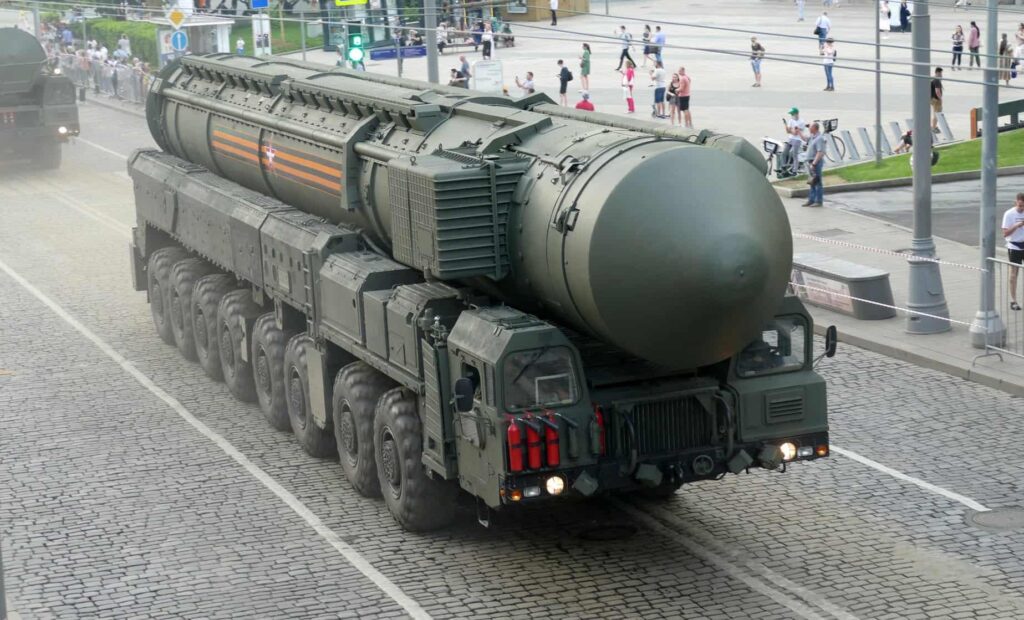

Russia is planning its largest armament program since the collapse of the USSR, spending approximately $1.1 trillion by 2036, says Lieutenant General Kyrylo Budanov, head of the Ukrainian Defense Intelligence, UNIAN reports.
“There is a total mobilization of politics, economy, and society in the Russian Federation to prepare for a future large-scale war,” emphasizes Budanov.
Russia’s military reform already includes the creation of two new military districts, the Moscow and Leningrad districts, as well as plans to form new divisions, formations, and military units.
The Ukrainian intelligence head also notes that Moscow seeks to dismantle the global security and economic order. Russia is expanding its influence in Africa, primarily through private military companies Wagner and the African Corps, and supports authoritarian regimes and terrorist organizations worldwide.
Additionally, Russians actively conduct hybrid information and cyber operations in other countries, employing controlled media outlets and politicians to spread their influence.
“Moscow aims to impose its own vision of the future world order, where the ‘great’ powers, primarily the Russian Federation, hold full authority, monopoly over all critical resources, and decide the fate of the world within a closed circle,” Lieutenant General Budanov stresses.
Earlier, UK Defence Journal reported that the US deployed nuclear weapons on British soil for the first time since at least 2008 amid Russia’s aggression. Several B61-12 thermonuclear gravity bombs have been transferred from the US Air Force Nuclear Weapons Center at Kirtland Air Force Base in New Mexico to RAF Lakenheath in Suffolk.
During the Cold War, US nuclear arsenals were stationed at this base, but they were withdrawn in 2008 as part of nuclear disarmament efforts across Europe.


© Adnan Abidi/Reuters
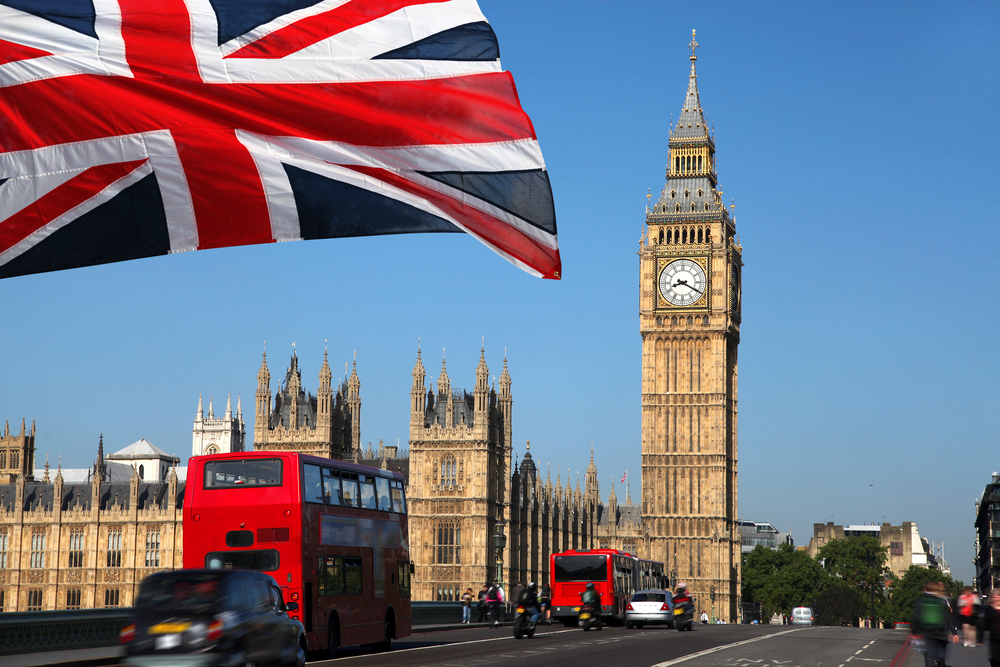

The UK is forming a new military alliance that mirrors NATO’s Article 5. Within a single week, London signed two defense agreements with key players, Germany and France, reports Defense Express.
Experts are already calling this the emergence of a trilateral military bloc that could either supplement NATO or act as its insurance policy.
The UK-Germany agreement outlines deep mutual defense commitments, including military assistance in case of an attack. Meanwhile, the declaration with France explicitly states that while the nuclear forces of both countries remain independent, they can be coordinated in case of an extraordinary threat.
“It’s clear that the UK is effectively creating an additional trilateral defense arrangement centered around itself,” notes Defense Express.
This is happening despite all three nations already being bound by obligations within NATO. Analysts believe such an initiative signals a “need to reaffirm mutual commitments.”
The core of the signed documents essentially duplicates NATO’s famous Article 5, a collective response to aggression. Across Europe, there is growing concern that relying solely on NATO in the event of a large-scale crisis may no longer be sufficient.


Oil Minister Hardeep Singh Puri says India is ready to meet its oil needs from alternative sources if Russia’s supplies are affected by secondary sanctions, Reuters reports.
Currently, Russia remains India’s main oil supplier, accounting for about 35% of total imports, but the country is actively seeking new sources, including Guyana, Brazil, and Canada. Moscow’s energy export remains its leading source of profits, which it uses to fund its war against Ukraine.
US President Donald Trump has recently warned that countries continuing to buy Russian oil could face 100% tariffs if Moscow does not agree to a peace deal with Ukraine within 50 days. NATO Secretary General Mark Rutte has also stated that due to the new economic measures, countries, including India, could suffer losses if continue business with Mooscow.
At the same time, India emphasizes energy security as a priority and says it will make decisions based on market conditions. The head of the Indian Oil Corporation, A.S. Sahni, has stated that if Russian supplies are restricted, the company will revert to traditional import schemes used before the war in Ukraine, when Moscow’s export was lower than 2%.
So far, some large private refineries, such as Reliance Industries and Nayara Energy, continue to purchase significant volumes of Russian oil, which led to an increase in imports from Russia in the first half of 2025.
Despite the restrictions the West has already imposed on Moscow, the Kremlin continues to use its “shadow” fleet. It includes a large group of oil tankers, many of which are old and poorly maintained.
Earlier, Ukraine’s Defense Intelligence said a powerful explosion occurred in the engine room of Russia’s Vilamoura tanker on 27 June, while it was en route from the Libyan port of Es-Zuwaytina.
It was located about 150 km northeast of Libya’s territorial waters and was carrying approximately 1 million barrels of crude oil. The tanker sailed under the Marshall Islands flag.
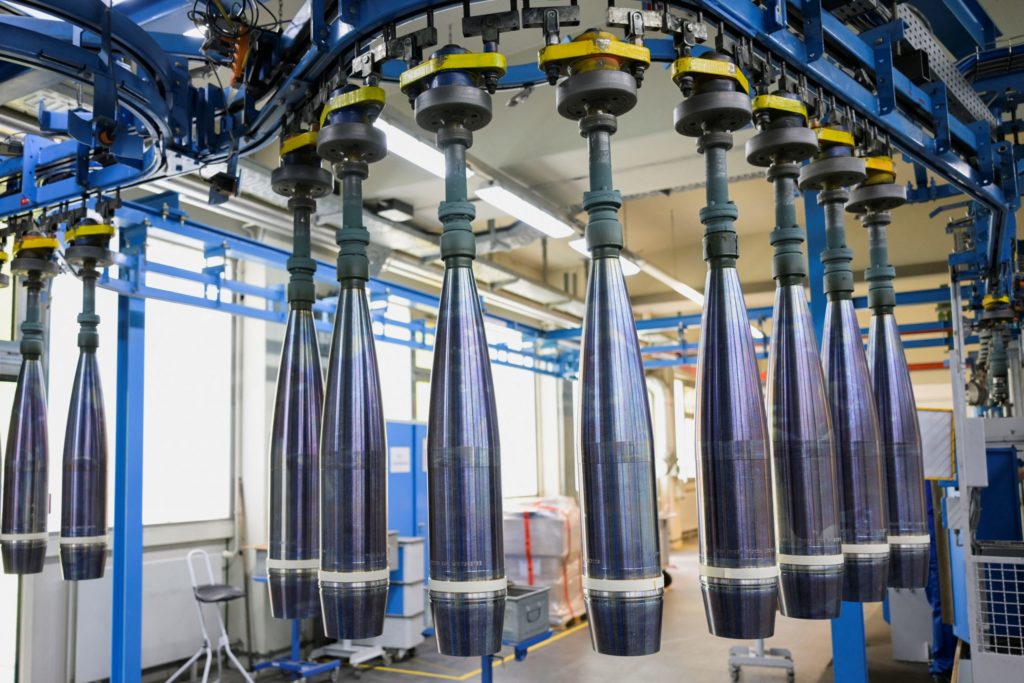

The Czech Ministry of Defense has announced a significant increase in artillery ammunition deliveries to Ukraine in 2025 under its weapon initiative. It combines NATO countries’ donations with direct ammunition sales through a government-led program that has earned the confidence of international partners, Reuters reports.
Czechia formed a special team for Ukraine, which together with private companies, scours global markets for surplus ammunition stockpiles and new production lines. Ammunition batches are offered to donor countries, which decide individually what to finance.
Director Ales Vytecka of the Czech Defense Ministry’s AMOS international cooperation agency says 850,000 shells have already been delivered in 2025 to Ukraine, including 320,000 of NATO-standard 155 mm rounds. These figures are approaching last year’s total of 1.5 million shells, 500,000 of which were 155 mm.
Despite the opposition party’s threats to shut the program down after elections, Vytecka stresses that transparency is maintained to the extent allowed by security considerations. He added that the 29% increase in donor contributions compared to 2024 is a clear vote of confidence in the program’s effectiveness.
Donor nations, including Canada, Germany, Norway, Sweden, the Netherlands, and Denmark, choose which deliveries to fund, and all procurement offers are subject to audit in their respective jurisdictions.
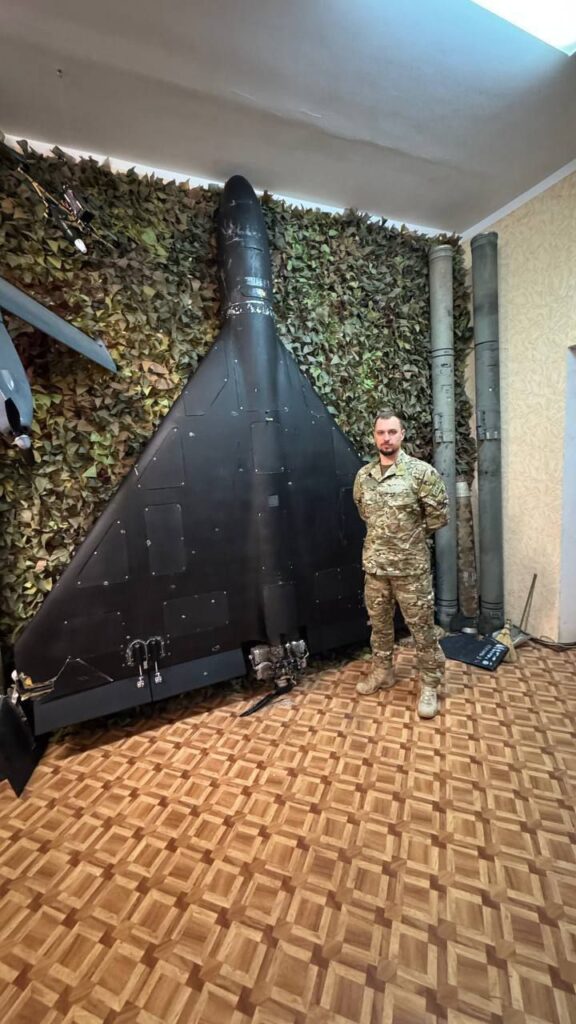

“Putin’s criminal war is approaching our borders,” the Polish Foreign Minister Radosław Sikorski has emotionally declared after the strike on Barlinek. On 16 July, a Russian drone attack on Ukraine damaged the Polish company Barlinek in the city of Vinnytsia.
Russia perceives Poland as one of its main adversaries among the EU and NATO countries. The Kremlin regularly accuses Warsaw of supporting Ukraine. In 2025, Poland has recorded instances of Russian sabotage against its targets, such as the fire at a large shopping center in Warsaw, which Poland officially linked to the activities of Russian intelligence services.
As a result of the strike, two employees were hospitalized in serious condition, suffering from numerous burns.
“Russian drones struck the Barlinek group’s factory in Vinnytsia. The factory director just told me this was done deliberately from three directions. There are wounded, two of them with severe burns,” Sikorski wrote on X.
Barlinek is a global manufacturer of wooden flooring, supplying products to 75 countries across 6 continents. The company also produces sports flooring, skirting boards, and biofuel pellets and briquettes for fireplaces. The Vinnytsia factory was opened in 2007.
Ukrainian emergency services and representatives of the Polish consulate were working on the attack site.
The Polish Foreign Ministry has informed a Russian diplomat that the products of the Polish company Barlinek in Ukraine serve civilian purposes. Therefore, Russia’s strike on the company’s factory in Vinnytsia violates international law and may have legal consequences in the future, UkrInform reports.
Paweł Wroński, the Polish Foreign Ministry’s spokesperson, says that the bombing of the Barlinek factory could be connected to the meeting of the Ukrainian, Polish, and Lithuanian foreign ministers of the Lublin Triangle in Lublin.
Ukraine, Poland, and Lithuania form new alliance to counter Putin’s weaponized historic narratives amid war of attrition
The main objective of these annual meetings, established in 2020, is to strengthen mutual military and cultural ties between the three countries and to support Ukraine’s integration into the EU and NATO.
Barlinek’s CEO, Wojciech Michałowski, reports that the attack severely damaged the factory. Production at the facility will be suspended for at least six months.
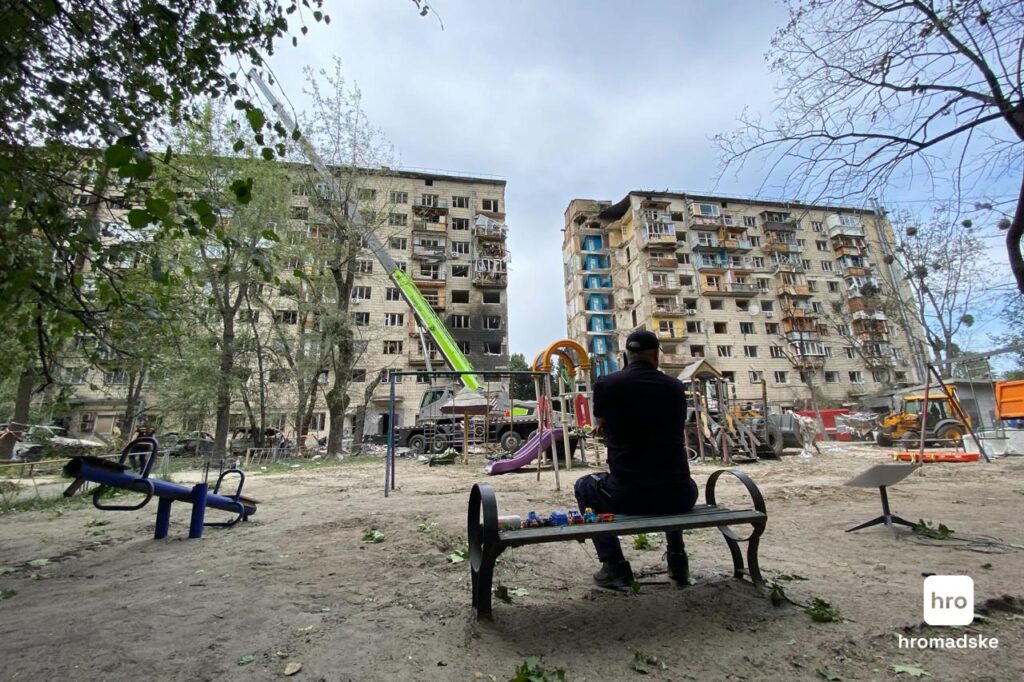

Russia’s war has triggered a tsunami of crises, says Bob Rae, President of the UN Economic and Social Council (ECOSOC) and Canada’s Permanent Representative to the UN. Moscow’s aggression against Ukraine has sparked a global food crisis, mass displacement, and setbacks in achieving the Sustainable Development Goals, UkrInform reports.
Russia shows no signs of being ready to end its war on Ukraine. On the contrary, Moscow is intensifying attacks on civilians and accelerating the arms race with the help of its partners, Iran, China, and North Korea. The logic of power based on nuclear deterrence has effectively been eroded by the development of drones. International law, too, was broken after the annexation of Crimea.
Rae notes that the war has sharply increased food prices for billions of people, endangered food security, and caused large-scale forced migration both within Ukraine and beyond its borders. This poses a serious challenge to the international community, which must ensure that people’s basic needs, especially access to affordable food, are met.
According to Rae, Russia’s effect on the global economy has been consistently negative. Even though inflation is beginning to ease, its effects remain deeply felt in many countries.
The diplomat likens the war’s impact not to “ripples on the water” but to a tsunami, so vast is the scale of the invasion’s consequences on a global level.
At the same time, he emphasizes that despite all challenges, Ukraine remains strong: its economy is holding, and its people continue to resist. Rae expresses hope that international support would remain as resilient as Ukraine itself.
You could close this page. Or you could join our community and help us produce more materials like this.
We keep our reporting open and accessible to everyone because we believe in the power of free information. This is why our small, cost-effective team depends on the support of readers like you to bring deliver timely news, quality analysis, and on-the-ground reports about Russia's war against Ukraine and Ukraine's struggle to build a democratic society.
Become a patron or see other ways to support.
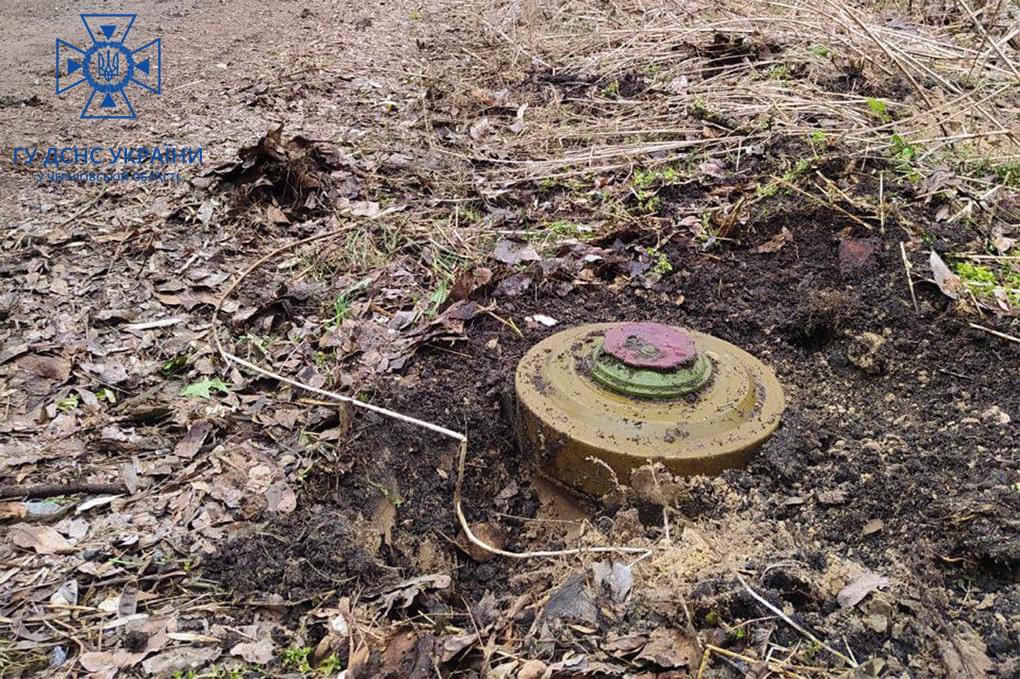

Ukraine aims to strengthen the defense of over 3,000 kilometers of its border with Russia and Belarus. Roman Kostenko, Secretary of the Parliament Committee on National Security, says that to achieve this, Kyiv is seeking a temporary suspension of the Ottawa Convention on the prohibition of anti-personnel mines, UkrInform reports.
Russia has never signed the Ottawa Convention, and has been laying mines across Ukrainian territory for over two years. Moscow troops have planted dense minefields along key routes where Ukrainian troops might advance. They have deployed mines via hand emplacement, rocket delivery, and have scattered them in rural and urban areas using drones.
The Ottawa Convention bans anti-personnel landmines worldwide. Since 1999, it has drawn 164 countries committed to destroying their mine stockpiles and clearing contaminated land, as mines can cause severe injuries and deaths among civilians. However, given that Ukraine has the right to protect itself, the government temporarily suspended its participation in the treaty.
“Considering the over 3,000 km border with Russia and Belarus, it is necessary to create a minefield at least several dozen kilometers wide, a preventive defense,” Kostenko explains.
Anti-personnel mines are effective, low-cost, and straightforward means of holding positions and creating denial zones for enemy infantry. They can demoralize the adversary and significantly complicate their movements and operations.
Kostenko emphasizes that fortifications without mine barriers are often ineffective.
“The enemy bypasses them. They are not always built in the right places. Fortifications must be guarded or be part of a combined system with mine barriers. One without the other does not work,” he says.
According to him, the use of anti-personnel mines will allow Ukraine to rapidly defend positions and significantly enhance the country’s defensive capabilities.
Six months ago, Lithuania and Finland also withdrew from the Ottawa Convention. Now, they are preparing to start the domestic production of anti-personnel landmines to supply their militaries and Kyiv. This decision reflects growing European concerns that Russia’s military ambitions may extend beyond Ukraine. China and the US never signed the document.
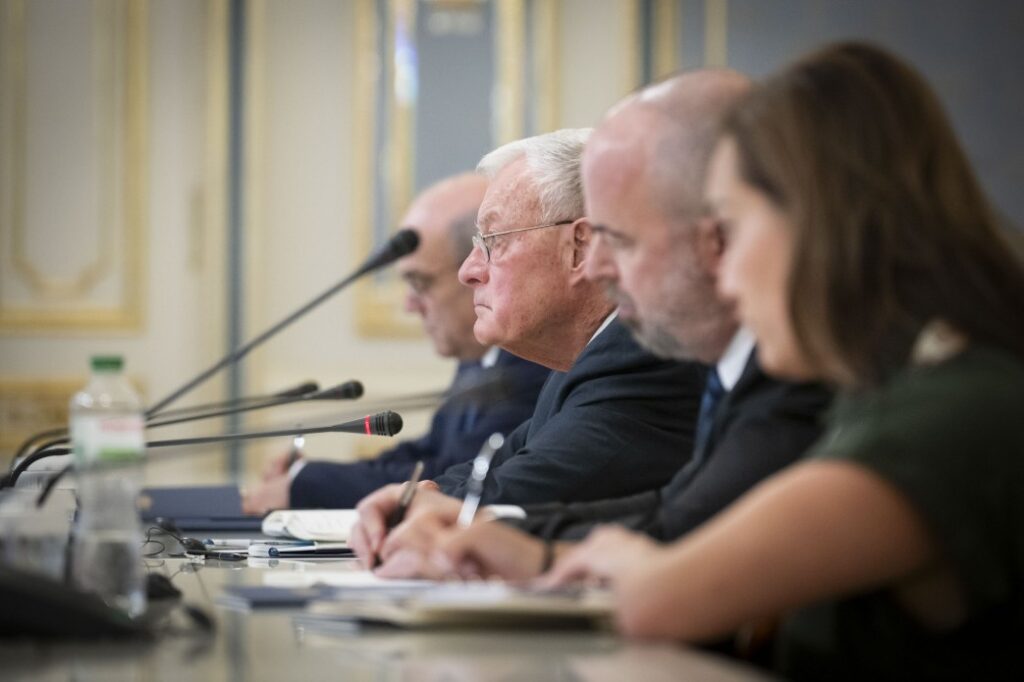

Kyrylo Budanov, the head of Ukraine’s Defense Intelligence, passed alarming information to US Presidential Special Representative Keith Kellogg during their meeting in Kyiv. Russia is preparing for a major war, not only against Ukraine but also against NATO.
On 14 July, Kellogg arrived in Ukraine to discuss concrete steps toward peace. He has already met with Ukrainian President Volodymyr Zelenskyy. The talks came against the backdrop of intensified Russian assaults, with over 330 missiles, 5,000 drones, and 5,000 aerial bombs launched in June alone. Kellogg’s visit to Kyiv coincided with Washington’s announcement of additional Patriot air defense systems for Ukraine.
The meeting was also attended by the Commander-in-Chief of the Armed Forces of Ukraine, Oleksandr Syrskyi, the Chief of the General Staff, Andrii Hnatov, and other intelligence officials. The American side was briefed on an updated assessment of the operational situation and the Kremlin’s plans for 2036.
“The Kremlin’s imperial ambitions are not limited to Ukraine. They encompass all of Europe. However, with US support, we are capable of stopping Russia and nullifying its military potential,” Budanov emphasized.
The head of the intelligence agency thanked the US for its assistance and stressed, “Russia respects only strength,” and that only through strong resistance can Ukraine achieve a true and lasting peace.
Earlier, US President Donald Trump, frustrated by fruitless “pleasant talks” with Russian leader Vladimir Putin on the war in Ukraine, issued an ultimatum to Moscow. He said that if the Kremlin doesn’t reach a peace agreement within 50 days, the White House will impose 100% tariffs on Russia. This effectively gives Putin 1,5 months to continue killing Ukrainian civilians. Trump also did not clarify what would happen if Moscow refuses to sign any deal with Kyiv.
Later, former Russian President Dmitry Medvedev openly mocked Trump’s statements, saying the Kremlin is indifferent to Washington’s new threats.
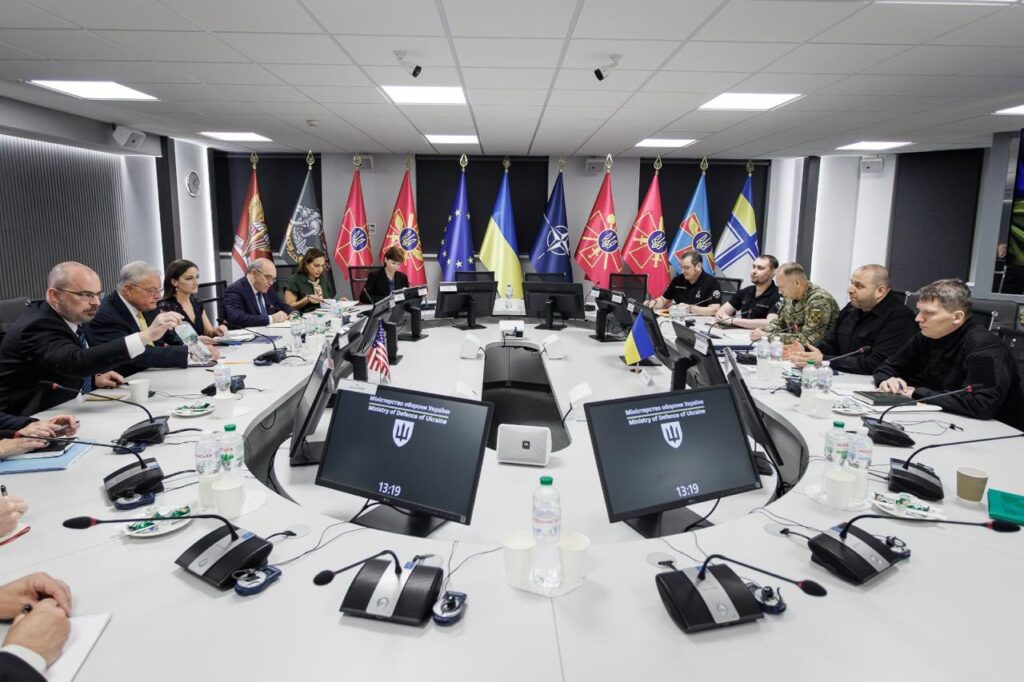

US officials have been briefed. Ukrainian Defense Minister Rustem Umerov reveals that during the visit of Keith Kellogg, the US presidential envoy, to Kyiv, the Ukrainian side shared alarming intelligence on the Kremlin’s plans.
On 14 July, Kellogg arrived in Ukraine to discuss concrete steps toward peace. He has already met with Ukrainian President Volodymyr Zelenskyy. The talks came against the backdrop of intensified Russian assaults, over 330 missiles, 5,000 drones, and 5,000 aerial bombs launched in June alone.
The Ukrainian defense minister says that Commander-in-Chief of the Armed Forces of Ukraine, General Oleksandr Syrskyi, Chief of the General Staff, Major General Andrii Hnatov, Chief of the Defense Intelligence of Ukraine, Lieutenant General Kyrylo Budanov, and other intelligence officials held a briefing for the US side.
According to Umerov, Ukrainian officials explicitly warned their American counterparts: Russia is preparing for a large-scale war, not only against Ukraine, but also against the North Atlantic Alliance.
“They presented the operational situation, assessed enemy plans, and informed about Russia’s preparations for a broader-scale war,” the minister states.
Umerov describes the conversation with Kellogg as “substantive and candid,” focusing on achieving a lasting and just peace. Key topics included continued defense support, joint defense projects, and the localization of air defense and drone production in Ukraine and Europe.
He also notes that Ukraine has a “unique combat experience, especially in the field of drones, and we are ready to share it,” with the US, adding that some of the defense projects could be financed using frozen Russian assets.


© Oscar Olsson, via Tt News Agency


Czechia began its inaugural voluntary military training program for high school students, with 718 participants beginning four weeks of intensive instruction at eight military bases across the country in the first program of its kind.
The initiative represents part of a broader defense strategy aimed at strengthening national security capabilities while providing youth development opportunities.
According to the Ministry of Defense, the program attracted nearly 750 applicants aged 18 to 22 years, with five candidates failing entrance medical examinations and others withdrawing for personal reasons. Female students comprise approximately 20% of the participant cohort, all of whom must be enrolled in secondary education to qualify.

Army General Karel Řehka, Chief of the General Staff of the Czech Armed Forces, stated that the program seeks to “actively reach out to the young generation and introduce them to military service” while “expanding our reserves” through increased societal resilience.
Participants will receive comprehensive military instruction including:
The curriculum also incorporates physical conditioning through morning exercises and field maneuvers, culminating in a two-day field exercise under natural conditions.
Can teenagers handle this intensity? The military thinks so. Students who complete the program take a ceremonial oath in their garrison town and receive 40,498 Czech crowns—roughly $1,900—before taxes.

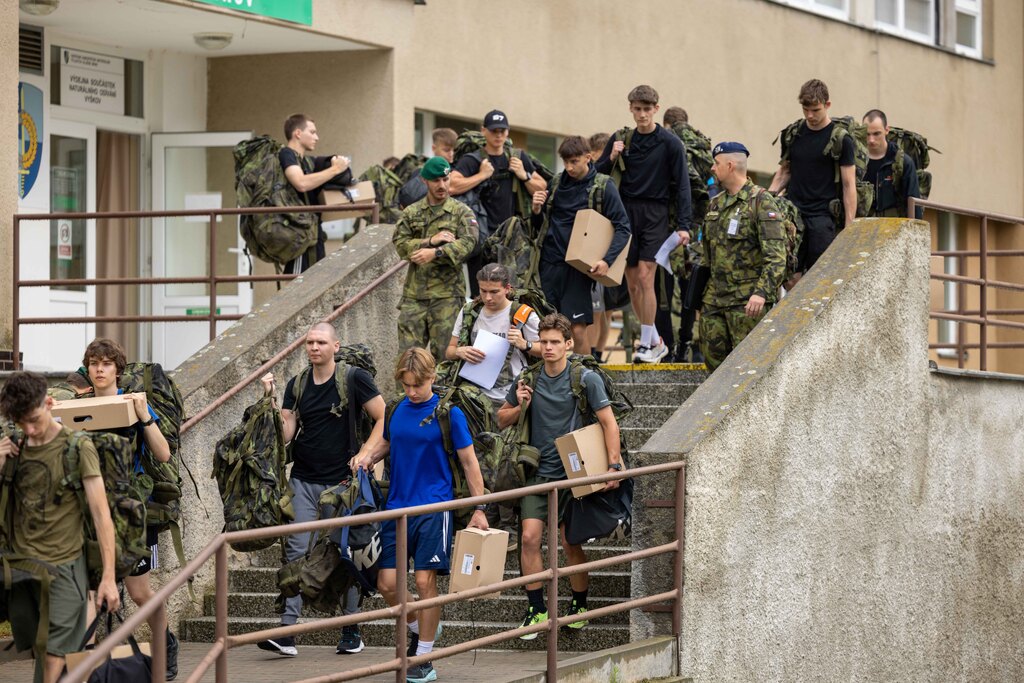
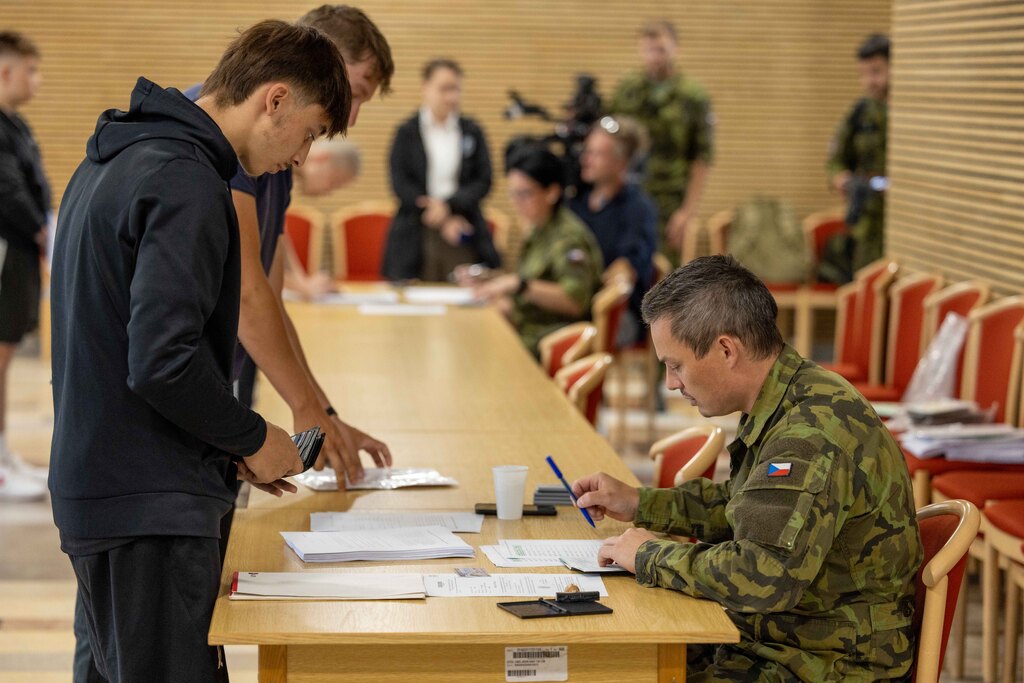
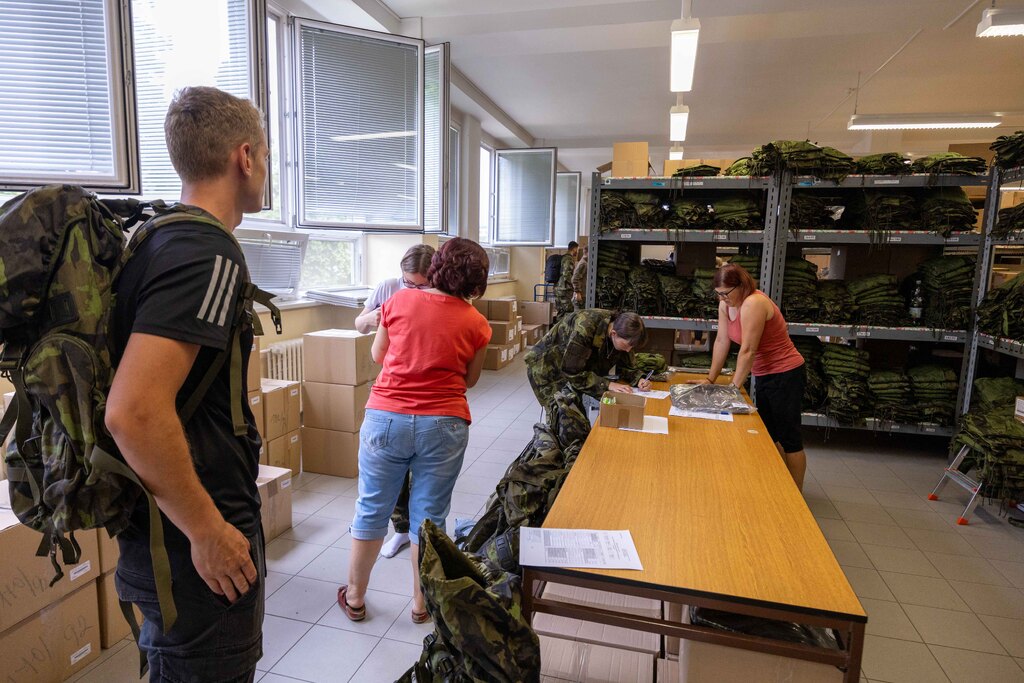
But the money isn’t the real incentive here. The Czech Ministry of Defense frames this as preparation for “crisis situations” while strengthening “the state’s defense capabilities.”
The initiative coincides with the Czech military’s Reserve Resources 2025 mobilization exercises conducted in June, which focused on emergency and wartime conscription procedures, according to previous ministry announcements.
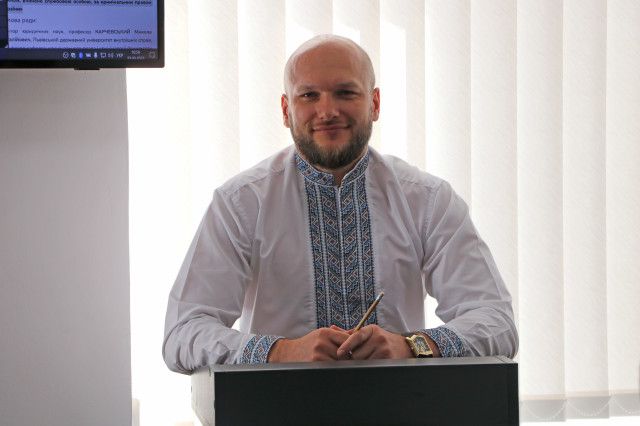

Ukraine's Cabinet of Ministers rejected a nominee to lead the economic crimes agency, drawing swift criticism from lawmakers and businesses over alleged interference in the selection process.
The agency, the Bureau of Economic Security, was created in 2021 to investigate economic crimes. It has since faced accusations of being used to pressure — and in some cases extort — businesses, prompting multiple calls and efforts to overhaul it.
Selecting a new director of the agency by the end of July is one of Ukraine's obligations to the EU and International Monetary Fund as part of international financing packages extended to the war-torn country by the institutions.
As part of a recent attempt to relaunch the bureau, Oleksandr Tsyvinsky on June 30 was officially nominated by the bureau's selection commission that consists of six members — three from the government and three international experts. Tsyvinsky is known for exposing schemes involving illegal land seizures in Kyiv..
But Ukraine's government on July 8 said it had rejected Tsyvinsky following alleged concerns raised by the country's intelligence service of potential Russian connections.
The government unanimously decided to ask the commission to submit two new candidates who meet all security requirements, the government press service wrote on its official Telegram channel, a move it claims aligns with the law.
Following Tsyvinsky's nomination, it was revealed that his father holds a Russian passport. He has said he hasn't spoken to his father, who lives in Russia, in years.
Tsyvinsky holds clearance for state secrets and has passed special vetting, backed by over 20 years in law enforcement, including nearly a decade at the National Anti-Corruption Bureau of Ukraine (NABU).
Opposition lawmaker Yaroslav Zhelizniak, said the government had no grounds to reject a properly nominated candidate, claiming President Volodymyr Zelensky's office is behind the blocking of the nomination.
"The (bureau's) legislation provides no legal grounds for the cabinet to demand a new shortlist or impose additional, undefined requirements such as 'security criteria.' The term itself is absent from any statute and therefore has no legal force," Zhelizniak said.
"The SBU letter in this case is nothing more than an indicator of the winner's disloyalty to the President's Office and a desire to block the appointment," said Olena Shcherban, deputy executive director of the AntAC in a statement following the news.
Major business associations have called on Zelensky, Parliament Speaker Ruslan Stefanchuk, and Prime Minister Denys Shmyhal to reverse the government's decision.
The business groups warned that failing to reform the agency will harm investment decisions, particularly as Ukraine's wartime economy needs to attract capital.
"War is a time for radical changes in the rule of law and business climate, otherwise the economy cannot ensure the country's survival," the businesses wrote in an open letter.
 The Kyiv IndependentLiliane Bivings
The Kyiv IndependentLiliane Bivings
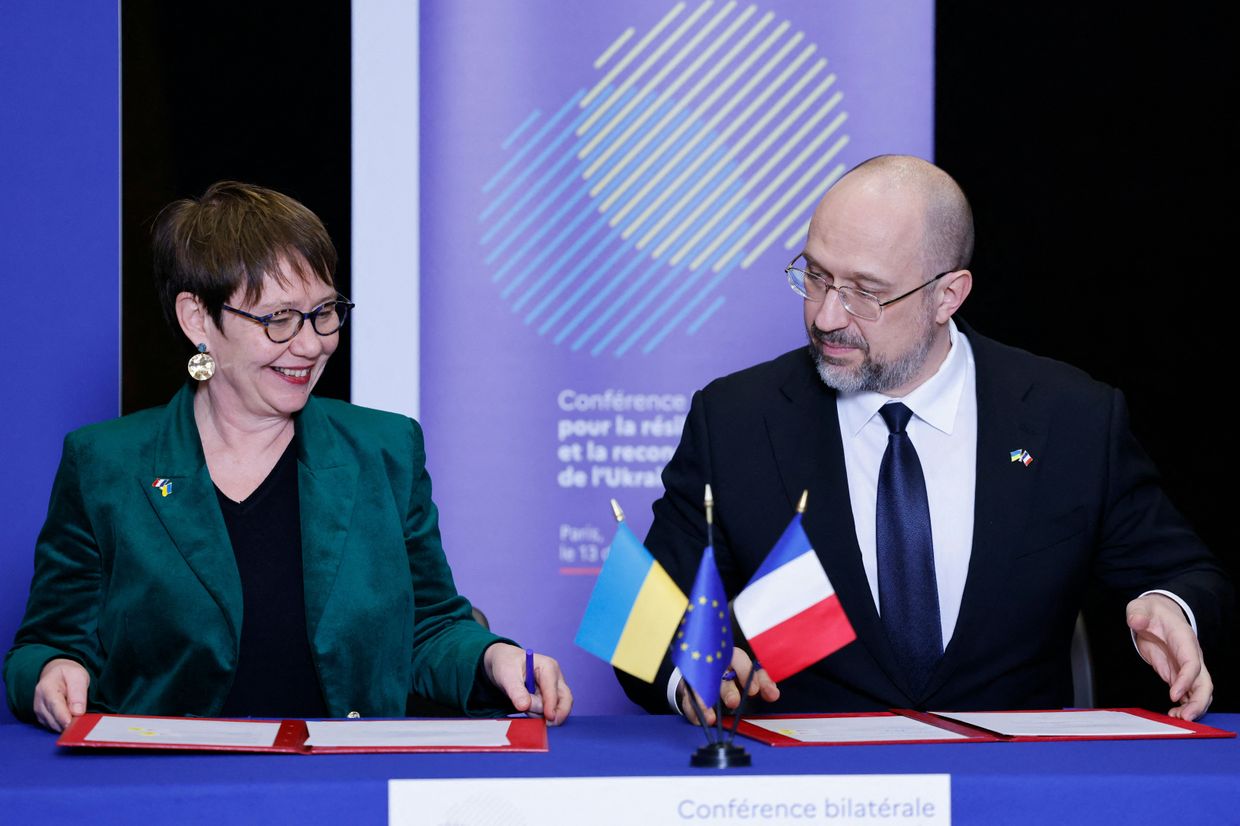

The European Bank for Reconstruction and Development (EBRD) will enable Ukrainian banks to provide up to 900 million euros ($1.05 billion) in new loans by sharing credit risks, the EBRD announced in a press release on July 7.
The loans will target companies in agribusiness, manufacturing, pharmaceuticals, transport and logistics, as well as energy security projects.
The mechanism will be announced at the Ukraine Recovery Conference (URC) in Rome on July 10-11. This represents the largest risk-sharing facility implemented in Ukraine since the war began, according to the EBRD's press release.
Due to destructive Russian attacks on Ukrainian energy infrastructure, the EBRD will also focus on supporting distributed generation and renewable energy projects.
Russian forces have damaged most of Ukraine's thermal power plants and about 30% of power stations, disrupting nearly two-thirds of the country's total electricity generation, the bank says.
The EU, together with other EBRD donors, has developed plans to de-risk renewable energy investments to attract more private capital, which they will announce at the URC.
Nearly one-third of EBRD's wartime financing to Ukraine — 2.4 billion euros ($2.8 billion) — has gone to the energy sector. This includes support for state-owned electricity transmission and gas companies, as well as financing for hydropower and small-scale distributed generation.
In a pre-URC press release, the EBRD also expressed interest in supporting the development of a natural graphite deposit in Ukraine following the U.S.-Ukraine minerals agreement. Graphite is a strategic material used in batteries and defense applications.
The bank will launch the second phase of digitizing Ukraine's paper-based geological data archive to make information about mineral deposits more accessible, the EBRD reports.
Since Russia's full-scale invasion in 2022, the EBRD has invested over 7.2 billion euros ($8.4 billion) in Ukraine's economy.
 The Kyiv IndependentTim Zadorozhnyy
The Kyiv IndependentTim Zadorozhnyy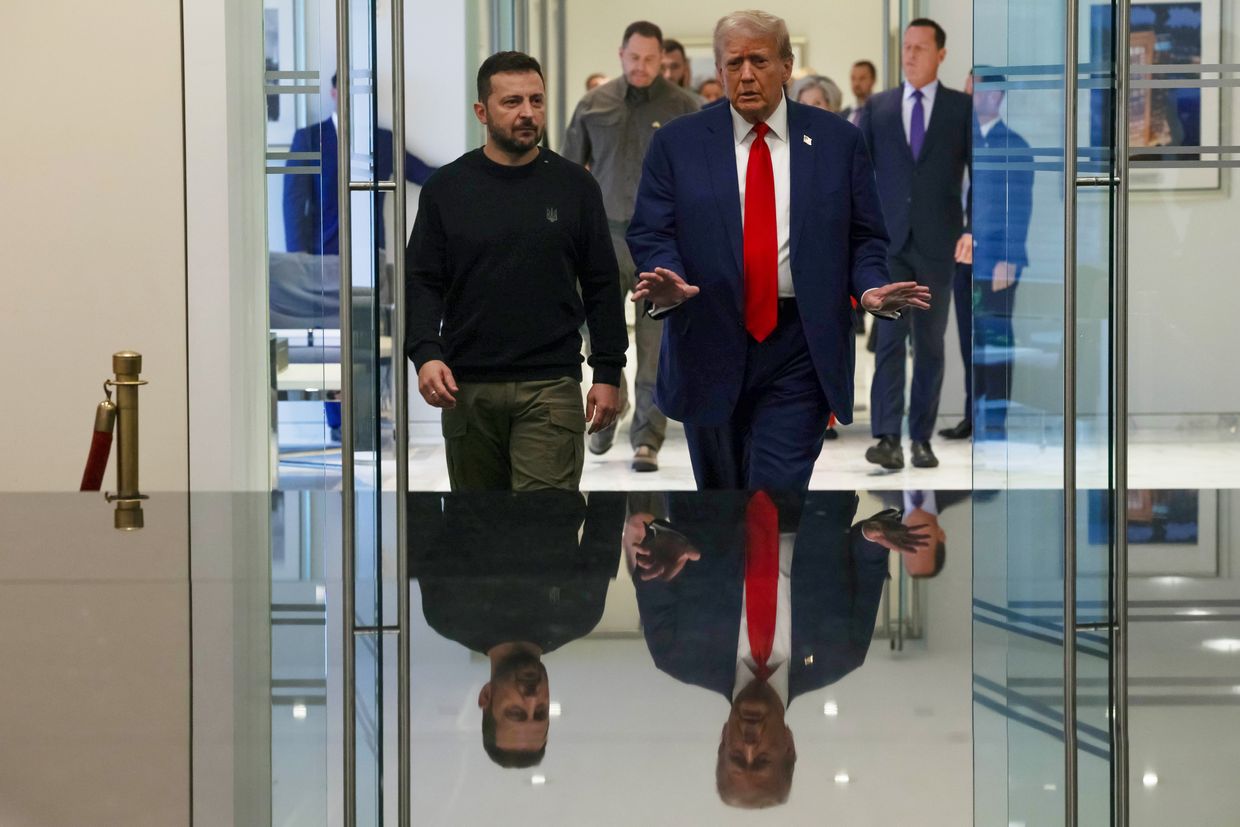
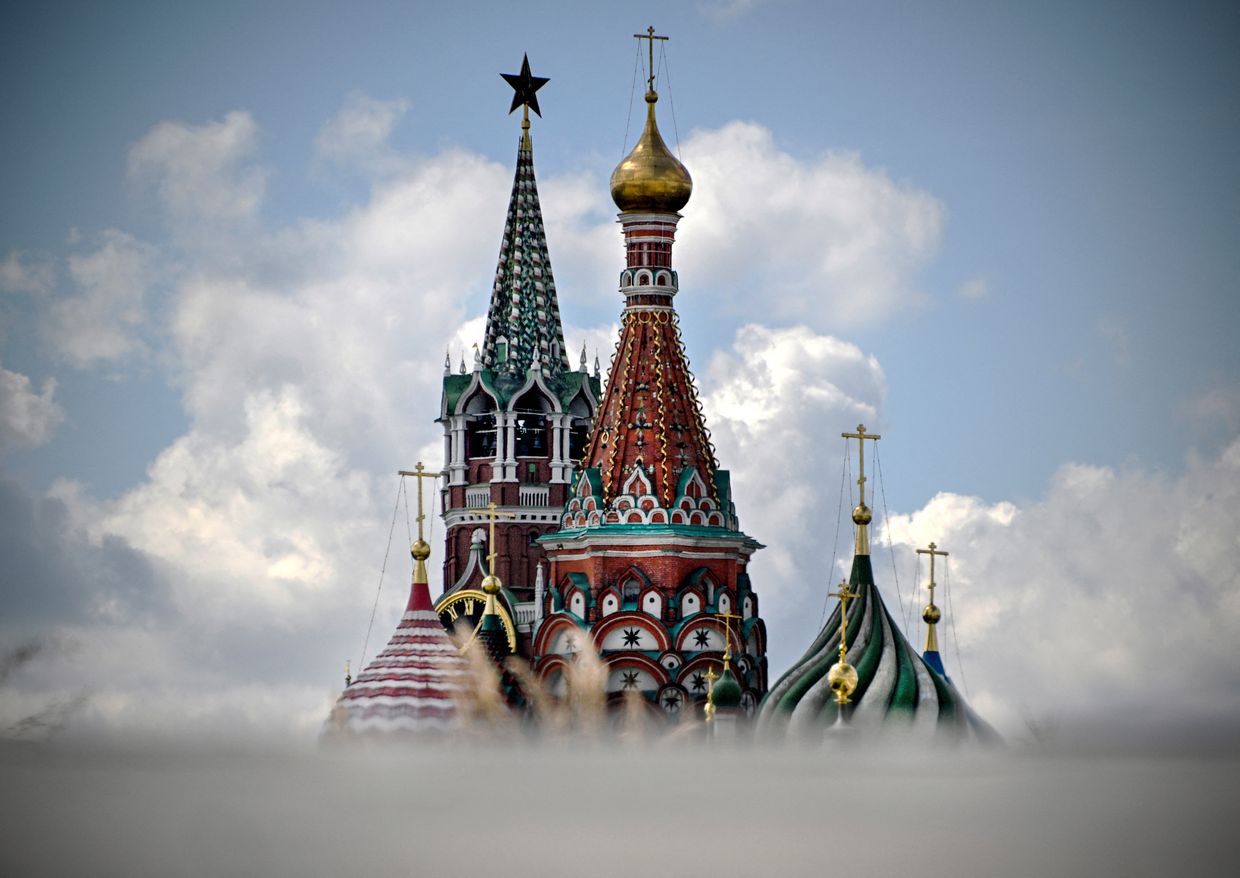

The U.S. Treasury Department's Office of Foreign Assets Control (OFAC) has imposed sanctions on the Russian IT company Aeza Group for hosting infostealers and ransomware operations, according to a press release published on July 1.
Restrictions were imposed on two subsidiaries and four members of the Aeza Group's management as well, the statement read.
The U.S. Treasury Department characterized Aeza as a "bulletproof hosting service" that provided services to the Meduza and Lumma infostealers, as well as to the BianLian and RedLine ransomware groups.
Aeza Group also hosted the Russian-language darknet marketplace for illegal drugs, BlackSprut.
According to the U.S. Treasury Department, Aeza Group sells access to specialized servers that help cybercriminals avoid detection and resist attempts by law enforcement agencies to suppress their criminal activities.
Sanctions against the company involve blocking all assets of the named individuals located in the U.S. Any legal entities that are owned, directly or indirectly, individually or in the aggregate, by 50% or more by one or more of the mentioned individuals are also blocked.
Violation of the U.S. sanctions may result in civil or criminal penalties.
The news comes as Ukraine continues to call on the U.S. to strengthen sanctions against Russia. Despite Russia's refusal to accept the ceasefire proposal and its army's ongoing advance across Ukrainian territory, the Trump administration has not yet imposed new restrictions.
Meanwhile, Senators Lindsey Graham (R) and Richard Blumenthal (D) introduced a bill to impose a 500% tariff on imports from countries that continue to buy Russian oil and raw materials.
The legislation currently has broad bipartisan support, with 82 out of 100 U.S. senators backing it. U.S. House Speaker Mike Johnson also voiced his support for the bill.
 The Kyiv IndependentKollen Post
The Kyiv IndependentKollen Post
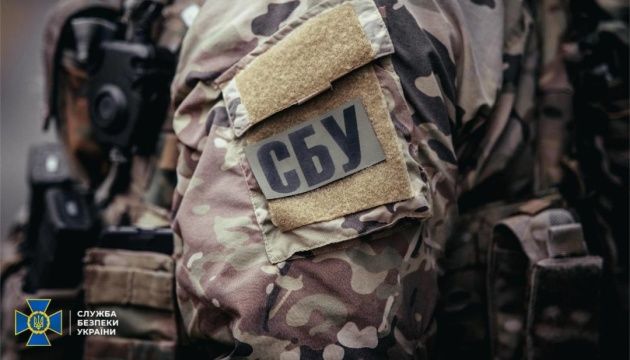

Ukraine's security service (SBU) is teaching teenagers how to avoid recruitment by Russian intelligence online, the New York Times (NYT) reported on June 21.
"Maybe not all of these special operations are reported in the media — but believe me, the enemy is not sleeping... They are working actively and carrying out illegal activities, as strange as it may sound, directly inside your phones," SBU spokesperson Roksolana Yavorska-Isaienko told students.
Approximately 22% of Ukrainians recruited by Russian intelligence to conduct sabotage or terrorist attacks are minors, Artem Dekhtiarenko, SBU spokesperson, said on April 2.
Russian intelligence attempts to recruit Ukrainian civilians online, offering easy money in return for sharing sensitive data or preparing sabotage or terrorist acts.
Russian intelligence finds its recruits using social platforms, including Telegram, Discord, and TikTok.
Unsuspecting teenagers are often offered hundreds or even thousands of dollars to conduct simpler tasks such as delivering packages or taking photos of energy sites, the NYT reports.
More serious tasks are commonly assigned to teenagers once they have been blackmailed for conducting less serious operations beforehand or when their phones are hacked to reveal compromising photos.
Russian intelligence is actively attempting to recruit Ukrainian nationals for illegal operations across the EU, Ukraine's military intelligence agency (HUR) said on June 2.
"The recruitment of Ukrainians for hostile operations in Europe is yet another tool of hybrid aggression that the Russian Federation is waging against Ukraine and the entire European community," HUR said.
The SBU caught a Russian agent as he was filming a military airfield in preparation for a Russian strike, the agency reported on June 15.
The Russian Federal Security Service (FSB) recruited the unemployed 24-year-old via the Telegram messaging app to collect coordinates for air attacks on airfields and logistic depots, the SBU said.
The Russian FSB allegedly offered "easy money" and instructed the recruit to find military facilities and carry out reconnaissance on the ground.
 The Kyiv IndependentKate Tsurkan
The Kyiv IndependentKate Tsurkan
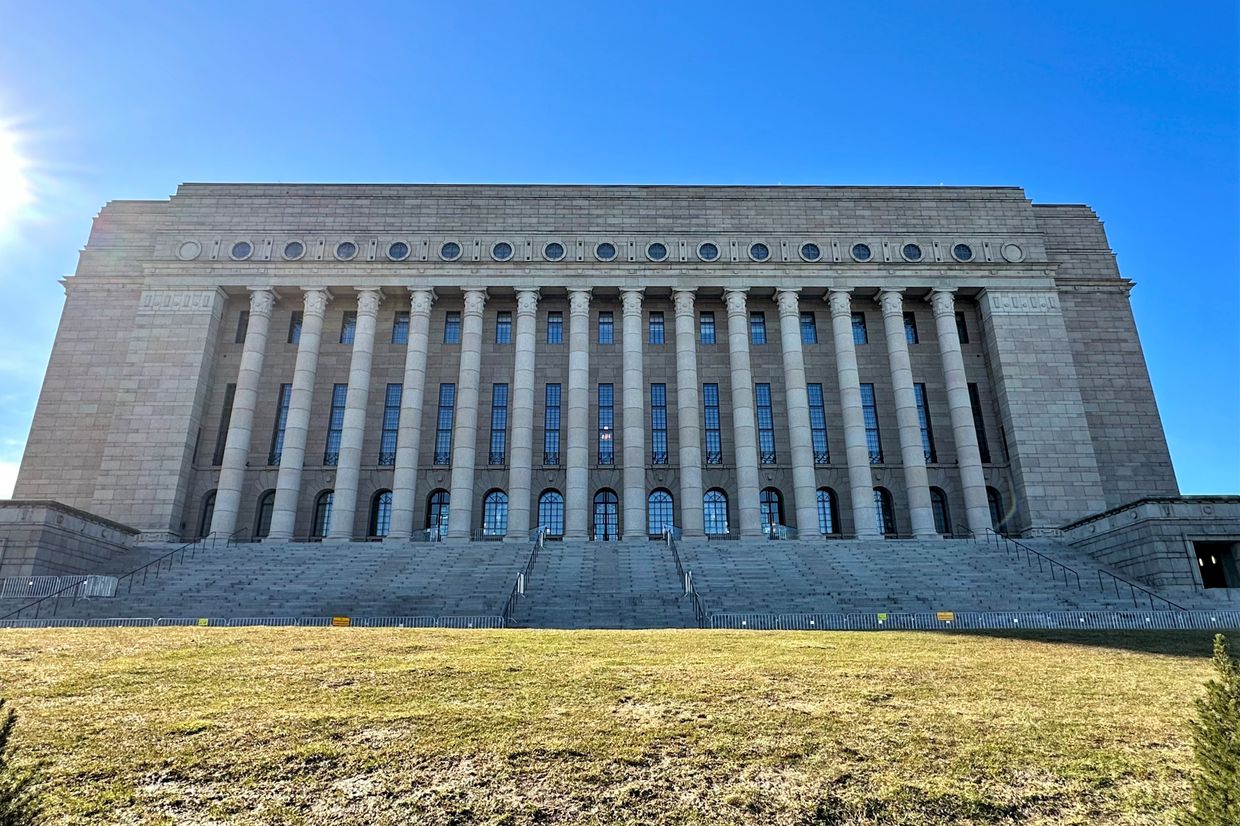

Finland's parliament voted on June 19 to withdraw from the Ottawa Convention banning anti-personnel landmines, citing growing security concerns from Russia's aggressive posture and the threat it poses to the region, Reuters reported.
The vote aligns Finland with its Baltic allies, Estonia, Latvia, and Lithuania, whose parliaments have already approved similar exits from the treaty.
Defending the decision earlier this week, Finnish President Alexander Stubb said the security reality along Finland's 1,300-kilometer (800-mile) border with Russia had changed dramatically since the full-scale invasion of Ukraine, according to TVP.
"The reality in the endgame is that we have as our neighboring country an aggressive, imperialist state called Russia, which itself is not a member of the Ottawa Treaty and which itself uses landmines ruthlessly," Stubb said.
Russia has widely deployed landmines across Ukrainian territory since launching its invasion in 2022, a tactic condemned by human rights organizations and Western governments.
Finland, which joined NATO in 2023, has significantly ramped up its defense posture amid growing concern over potential Russian provocations. The country closed its border with Russia over a year ago, accusing Moscow of orchestrating a "hybrid operation" by directing asylum seekers toward Finnish territory. Helsinki claims such hybrid tactics have intensified since it joined the alliance.
The Finnish Border Guard completed the first 35 kilometers (22 miles) of a planned 200-kilometer (124-mile) fence along its eastern frontier on May 21. The move came amid growing evidence of Russian military infrastructure expansion near the Finnish border.
Finland is "closely monitoring and assessing Russia's activities and intentions," Finland's Defense Minister Antti Hakkanen told AFP on May 22.
"We have excellent capabilities to observe Russian operations. As a member of the alliance, Finland holds a strong security position."
Russia's Defense Minister Andrei Belousov said in December 2024 that Moscow must be ready for a potential conflict with NATO within the next decade. Western officials have repeatedly warned of the possibility that Moscow could target NATO members in the coming years.
 The Kyiv IndependentDmytro Basmat
The Kyiv IndependentDmytro Basmat